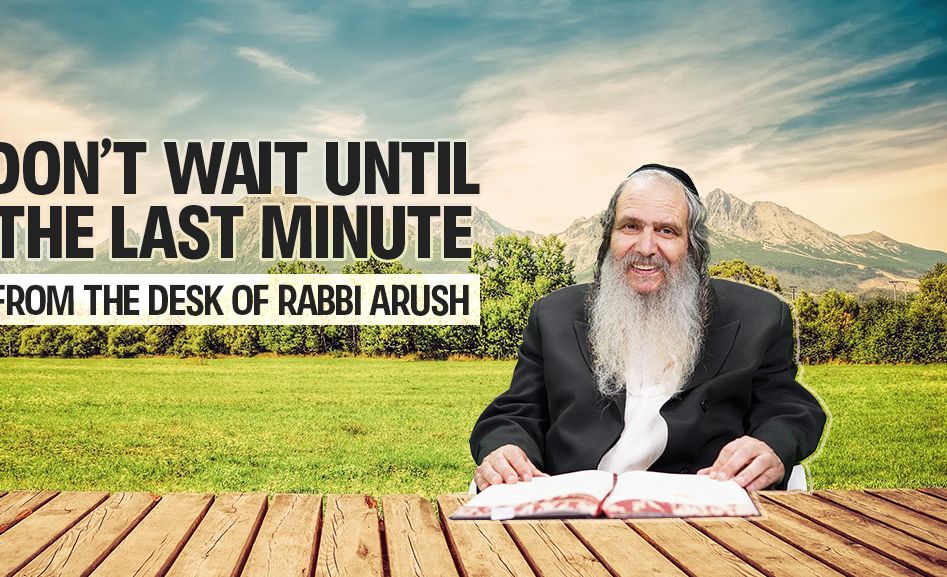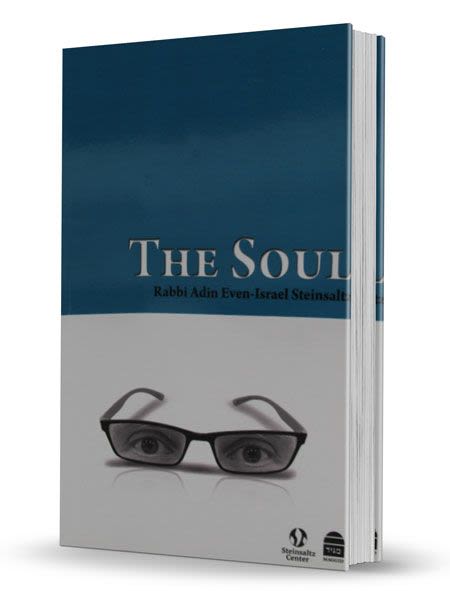
Power Hour – Preparation for Rosh Hashana
A person who is out of shape and just starting to train will see huge improvement in overall health after only a few weeks of training. The same applies in spirituality...

Rosh HaShana is quickly approaching and many of us are just starting out on our paths in Judaism. Others have already been on the path for quite some time but may not really feel happy. Let’s learn how we can prepare for Rosh HaShana.
EVEN A WICKED PERSON
In the Gemara (Avoda Zara 17a) there is a story that drives home the message of prayer. Rabbi Yehuda HaNasi was crying as he said that “There are those who can acquire a share in the World to Come in one hour.” He was referring to a man by the name of Elazar ben Durdaya who immersed himself in forbidden relationships. While in the act of his sin the woman he was with said directly to him: “Elazer ben Dordiya’s repentance will not be accepted!”
Shaken to the core, he came to his senses and sought forgiveness. He was so distraught that he went to the wilderness and prayed. He cried so hard that his soul departed. A voice from Heaven then said “Rabbi Elazer ben Dordiya is destined for life in the World to Come.”
WHAT DO WE LEARN?
 Why was Rabbi Yehuda HaNasi crying over this matter? He understood that it was a lesson for the righteous. Here this sinner was accepted to Heaven and was even given the title of Rabbi! We learn that even a person who is far away from Torah observance can achieve through one hour what takes the righteous many years to achieve.
Why was Rabbi Yehuda HaNasi crying over this matter? He understood that it was a lesson for the righteous. Here this sinner was accepted to Heaven and was even given the title of Rabbi! We learn that even a person who is far away from Torah observance can achieve through one hour what takes the righteous many years to achieve.
In personal training there is a concept that an elite athlete who trains hard will only see slight improvement in performance. But a person who is out of shape and only just beginning will have a huge measurable improvement in overall health after only a few weeks of training. The same applies in spirituality.
WHAT ABOUT US?
Many of us are newly observant. The light that is felt by the newly observant is very difficult for a person who has been keeping the Torah all of their lives to feel. But even those who are on the path of Torah and have been keeping the mitzvoth all their lives can attain that connection with Hashem. By dedicating an hour of personal prayer, as Rebbe Nachman said to do, a person can easily begin to taste a sweeter spiritual life.
WHAT DO I DO FOR AN HOUR?
Well given the time of year, seeking forgiveness is a top priority of focus. As Rabbi Shalom Arush says, a person should dedicate 30 minutes every day to one subject for character improvement. In recent years he has stressed repeatedly the necessity to dedicate this time for improving our ability to guard our eyes from lustful images (see Garden of Purity). Rabbi Yitzchak Kadouri of blessed memory once said that this is the most valuable asset in all of our Torah observance. He said that people think that Torah learning, and mitzvoth observance are very valuable but in truth he taught that it’s small change in comparison to the perfection of one’s ability to avoid immodest sights!
BEING MORE SPECIFIC
Rabbi Shalom Arush teaches in “In Forest Fields” that the way to do teshuva is to recognize one’s faults and shortcomings while turning to Hashem and asking His forgiveness. The Rav stresses not to cry because you aren’t a perfect angel. Even our failures come from Hashem to simply help us get closer to Him and pray harder. This enables us to make a better second attempt. The key when repenting is to rid ourselves of the feeling that we are perfect and to maintain a positive mind frame of mind when we have a setback.
THE KEY
To properly embrace teshuva we have to remember to keep a happy outlook. For example, a man who is trying daily to guard his eyes, slipped up and saw a woman who attracted him. The incorrect way to do teshuva in this matter would be to pray:
“Ooof Hashem, again I saw another woman, I’m such a bad person. No matter what I do I can’t ever guard my eyes. I’ll never be holy, please forgive me for seeing that woman. I don’t want to be punished.I promise it’ll never happen again.”
The above prayer is filled with arrogance; it fails to acknowledge that the “failure” came from Hashem. The person is filled with self-persecution, not holiness.
SO HOW DO I PRAY?
“Hashem, I feel bad that I saw another woman today. You know how I just want to be closer to You and involve my thoughts in holiness but in this case I slipped up. Hashem I’m sorry, I can’t guarantee that I’ll never see another woman again but I can promise that I will pray to you for guarding my eyes every day for 30 minutes.”
May you merit a Happy New Year and a daily Power Hour!











Tell us what you think!
Thank you for your comment!
It will be published after approval by the Editor.